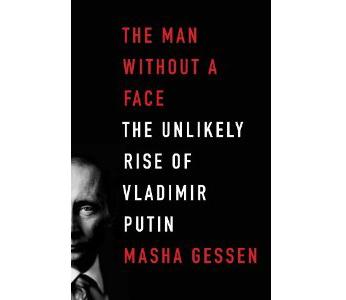The man without a face

Review: The Man Without a Face, The Unlikely Rise of Vladimir Putin, by Masha Gessen, Granta, 2012.
By John Murray.
In this lively account of Putin’s rise to power, Masha Gessen, a Russian-American journalist living in Moscow, believes change in Russia is imminent. Last Sunday’s election results – even allowing for vote tampering – tell a different story: Putin was and remains the country’s favourite politician by a long way, or, as the city’s leading tabloid put it, the newly elected President is “our past, our present, and out foreseeable future.”
Why? In a word, because he is not Yeltsin. For the more well-heeled middle-class Russians that is no longer enough. But for them, the problem is that they are a small minority.
Gessen belongs to this minority and duly portrays Putin as a monster. She blames him in one way or another for the murder of journalist Anna Politkovskaya, the poisoning with polonium of Alexander Litvinenko, the 1999 apartment bombings, the bloody outcomes to the siege at the Dubrovka Theatre, the massacre of children in Beslan, and a host of other foul deeds.
While the accusations come thick and fast, the closest Gessen comes to actually proving anything against Putin is her assertion that in 1992, while working for the Leningrad City Council, he received kickbacks from German firms he supplied with state-owned oil, gas and other raw materials in return for food destined for Leningrad that never arrived. Gessen tells us there is plenty of incriminating documentation, but Putin was never charged and “the story died”.
That said, many of the criticisms she levels at Putin are justified. That he set about turning the media into his mouthpiece as soon as he took over from Yeltsin is no secret, but only part of the story.
The Yeltsin media were owned by the very oligarchs Yeltsin had enriched with the country’s natural resources in the 1990s. Each oligarch’s media outlets pushed their owner’s line, which many Western commentators equated with a free and diverse press.
For example, Vladimir Gusinsky, the oligarch owner of the news magazine Gessen worked for at the time, had no compunction in temporarily parking his belief in a free press by getting his journalists to knowingly (and willingly) distort the truth in order to ensure the ailing and corrupt Yeltsin – their creature – was re-elected as president in 1996.
In other words, the liberal media of 1996 were guilty of the same crime of which Gessen accuses today’s pro-Putin media.
In glossing over the economic miseries visited on the Russian people by Yeltsin’s democrats in the 1990s, Gessen fails to explain that the reason Putin remains so popular is that during his first two terms in the Kremlin – from 2000 to 2008 – the economy grew by about 7% a year and people got richer.
The most common answer people now give to explain why they support Putin is “stability”, by which they mean salaries and pensions are paid on time, thereby allowing people both to live according to their means and plan for the future.
Whether Putin’s popularity can survive in the long term by satisfying such modest expectations remains to be seen.
John Murray is Lecturer in Russian at Trinity College, Dublin.
